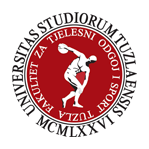THE ROLE OF TEACHERS IN MARSHAL ARTS
Keywords:
empty hand, yield, kindness, celestial wisdom, non-negotiable principles, aikido, karate, judo, tai-chi, moral strength, flexibility, deadly weapon, tolerance, true meaning, imaginary opponents, softness, meditation in movement, meekness, etymology.Abstract
The role of teachers in marshal arts is determined by the philosophical and spiritual eastern traditions which essential ideas are incorporated in the various forms of fighting styles; particularly in aikido and tai-chi. The quintessence of traditional marshal arts is reflected in the sophisticated ethical values such as tolerance, kindness and non-violence. The teachers or marshal art instructors convey the spirit of harmony and serenity with “meditation in movement” (kata, kumite, kihon) by insisting on the development of “inner wisdom” and “inner energy”. The unity of softness and strength (yin and yang) is one of the central ideas which comprises both spirit and body and is never reduced to a sheer muscular force, which is symbolized by springy branches and flexibility of seemingly weak forms of life. Namely, softness is the sign of life while rigidity is the sign of death; therefore the true nature of bushido is gradually revealed in the contemplation of dynamic equilibrium or “the immovable centre”. Marshal art teachers are those who follow the ancient ethical principles and emanate the spirit of reconciliation and harmony. The external form of marshal arts could be misleading for those who do not understand the ultimate goal of all traditional fighting styles; personal development and enlightenment of the invincible way of the warrior of peace.
Downloads
Downloads
Published
How to Cite
Issue
Section
License

This work is licensed under a Creative Commons Attribution-NonCommercial-NoDerivatives 4.0 International License.






